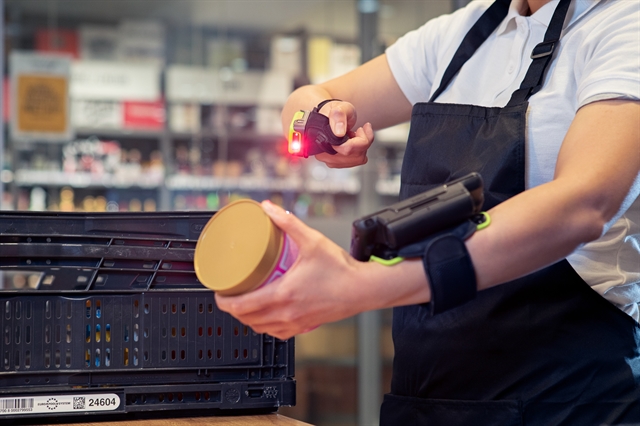 Politics & Law
Politics & Law

 |
| Many retailers in Việt Nam are laying the groundwork to build a modern store experience. — Photo courtesy of Zebra |
HÀ NỘI — Việt Nam's retail sector is rapidly advancing in terms of digital transformation, with retailers embracing data-driven strategies and diversified sales channels to cut costs and streamline operations.
The positive assessment was announced at the launch of Zebra Technologies Corporation, a global leader in digitising and automating frontline workflows 17th Annual Global Shopper Study on Tuesday.
In Việt Nam, the total retail sales of consumer goods and services saw a year-on-year increase of 8.5 per cent, reaching over VNĐ5.2 trillion (US$207.5 billion) from January to October 2024, according to the General Statistics Office (GSO). The Ministry of Industry and Trade has also forecast that Việt Nam’s retail market to reach $350 billion by 2025, underscoring the sector’s robust trajectory.
“Many retailers in Việt Nam are laying the groundwork to build a modern store experience,” said Christanto Suryadarma, Sales Vice President for Southeast Asia (SEA), South Korea and Channel APJeC, Zebra Technologies.
“By investing in mobile and intelligent technologies to provide greater visibility, help inform operational decisions and enable great mobility for associates, this ladders up to elevate the customer experience for retail’s long-term longevity. These efforts are transforming the retail landscape in Việt Nam, positioning local businesses to harness the potential of Zebra Technologies to optimise operations and adapt to an ever-evolving market demands,” he added.
However, the study also shows shoppers are not the only ones who are worried about the impact of theft and crime on the in-store experience.
The majority of retail associates (84 per cent globally, 72 per cent in Asia Pacific (APAC) are concerned about the lack of technology deployed to spot safety threats or criminal activity.
With most retailers (78 per cent globally, 80 per cent in APAC) under high pressure to minimise theft and loss, they are now investing in technology tools that can help frontline workers and those watching operations from behind the scenes.
Artificial intelligence (AI) technologies are currently viewed as the most helpful with loss prevention, closely followed by cameras, sensors, and Radio Frequency Identification (RFID).
While only three in ten retailers (38 per cent globally and in APAC) currently use AI-based prescriptive analytics for loss prevention, more than half surveyed (50 per cent globally, 52 per cent in APAC) plan to use it in within the to next one to three years. Over three in 10 retailers say they also plan to use self-checkout cameras and sensors, computer vision and RFID tags and readers within the next three years, specifically for loss prevention.
Nearly 90 per cent of retail associates believe they can provide better customer experience when they have mobile technology tools to help simplify real-time communication and prioritise tasks as well as check prices and inventory. Most retailers agree technology enables associates to do their jobs better, and as a result, 75 per cent of global retailers (79 per cent in APAC) say they plan to increase their technology investments in 2025. — VNS




